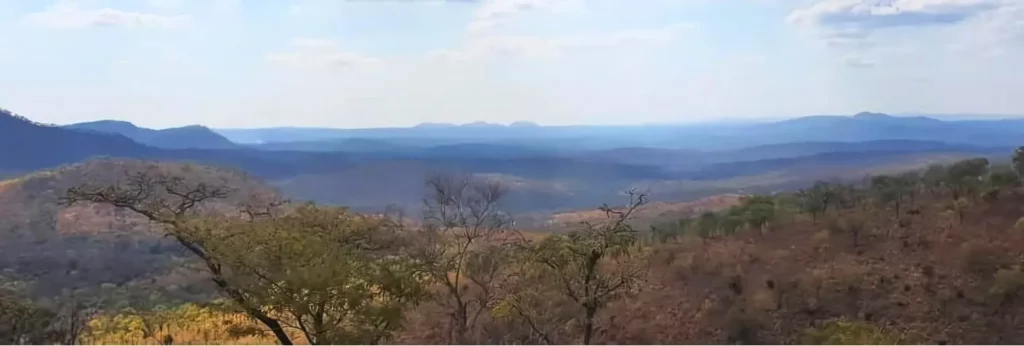Amidst the beauty of Zambia’s natural landscapes lies a silent, creeping destruction. The lush riverine forests, once teeming with life, are being rapidly depleted. As demand for charcoal grows, these vital ecosystems are vanishing, leaving behind barren lands where rich biodiversity once thrived.
The Heart of the Problem
Charcoal production has become a widespread practice, particularly in rural areas where it serves as a primary source of income. However, this comes at a high cost. The process involves cutting down large areas of forest, including the riverine forest and adjacent woodland canopy, which are crucial for maintaining ecological balance.
The images captured here starkly depict this wanton destruction. Trees that once provided shelter, food, and protection to countless species are reduced to mere stumps. The rich, green canopy that was once a hallmark of these forests has been stripped away, leaving the land exposed and vulnerable.
Environmental Consequences

The impact of this deforestation extends far beyond the immediate loss of trees. Riverine forests play a critical role in protecting water sources, preventing soil erosion, and supporting diverse wildlife. Their destruction disrupts the entire ecosystem, leading to a cascade of negative effects:
Water Sources: Without the forest to act as a natural filter, rivers and streams become more prone to pollution and sedimentation, threatening both wildlife and human communities that rely on these water sources.
Soil Erosion: The loss of tree cover accelerates soil erosion, which can lead to desertification and reduced agricultural productivity, further exacerbating poverty in affected regions.
Biodiversity Loss: As the habitat is destroyed, countless species of plants, animals, and insects lose their homes, leading to a significant reduction in biodiversity.
A Call To Action
The images of this devastation should serve as a wake-up call to the urgent need for sustainable alternatives to charcoal production. Conservation efforts must focus on reforestation, sustainable energy solutions, and community education to prevent further destruction of these critical ecosystems.
It is imperative that we work together to protect the remaining riverine forests and restore those that have been lost. The future of Zambia’s natural heritage depends on it.
